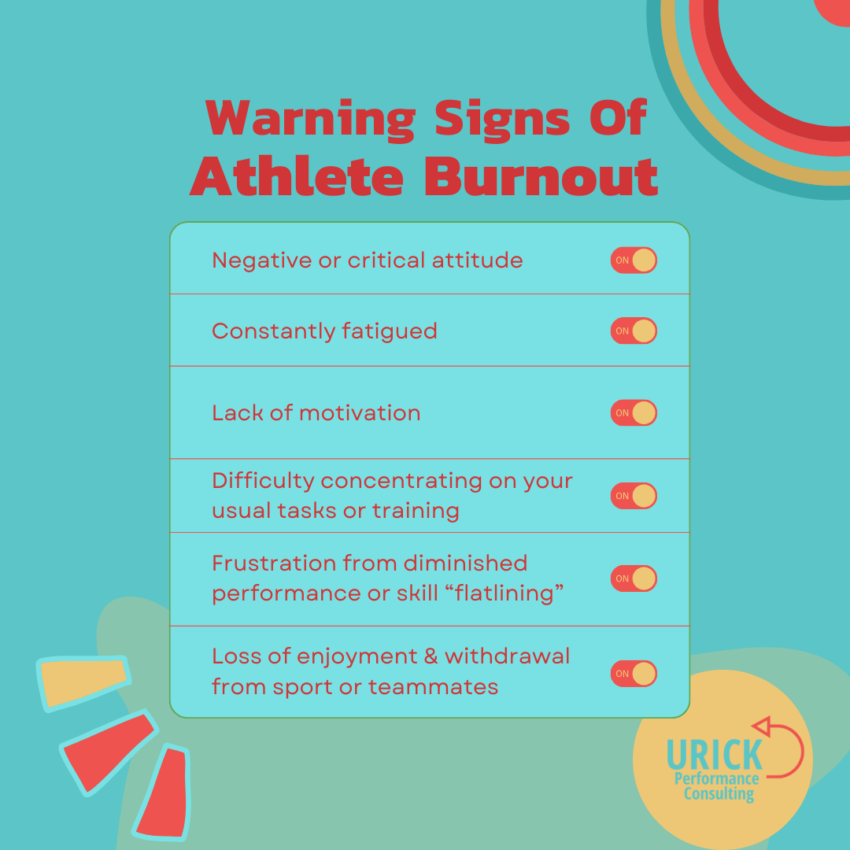My coaching services include helping athletes with managing burnout. Burnout has been at the forefront of my work since undergrad – when I looked at the burnout rates specific to sport organizations themselves. Complemented by my master’s work in sport psychology (and my thesis research on athlete burnout in DIY/alternative sport spaces), I can focus on this work with my clients.

So, why does burnout happen to some of us and not everyone (not even if we’re on the same team)? And how can we, as athletes, recover from it?
Athletes are known for their commitment and dedication to their sport. However, this level of dedication can also lead to burnout, which can negatively impact their performance and overall well-being. Burnout is a state of physical and emotional exhaustion that results from prolonged stress and can manifest as reduced motivation, fatigue, and feelings of detachment. In order to prevent burnout and maintain peak performance, athletes can benefit from a routine that focuses on managing stress, promoting self-care, and building resilience.
- Manage Stress: Stress is a common factor that can contribute to burnout in athletes. Therefore, it is important for athletes to learn effective stress management strategies. This can include techniques such as mindfulness meditation, deep breathing, and progressive muscle relaxation. By managing stress, athletes can reduce the negative impact of stress on their physical and mental well-being.
- Promote Self-Care: Athletes often prioritize their sport over their own self-care, which can lead to burnout. Therefore, it is important for athletes to prioritize self-care activities such as getting enough sleep, eating a balanced diet, and engaging in relaxation techniques. By taking care of their physical and mental well-being, athletes can improve their resilience and prevent burnout.
- Build Resilience: Resilience refers to an individual’s ability to adapt to stress and overcome adversity. Athletes can build resilience by developing a growth mindset, setting realistic goals, and practicing positive self-talk. By building resilience, athletes can better cope with stress and setbacks, which can prevent burnout.
- Develop a Support Network: A support network can provide athletes with emotional support, guidance, and encouragement. Athletes can develop a support network by building positive relationships with coaches, teammates, family, and friends. By having a support network, athletes can better manage stress and prevent burnout.
- Embrace Recovery: Recovery is an essential component of athletic performance and preventing burnout. Athletes can embrace recovery by incorporating rest days into their training schedule, engaging in active recovery techniques, and prioritizing sleep. By embracing recovery, athletes can improve their physical and mental well-being, which can prevent burnout.
Preventing burnout is essential for athletes to maintain optimal performance and overall well-being. Make sure that you have a training plan that focuses on managing stress, promoting self-care, building resilience, developing a support network, and embracing recovery, athletes can prevent burnout and achieve their goals in a sustainable way.
Want to check in on your current burnout rate? PN has a quick assessment.